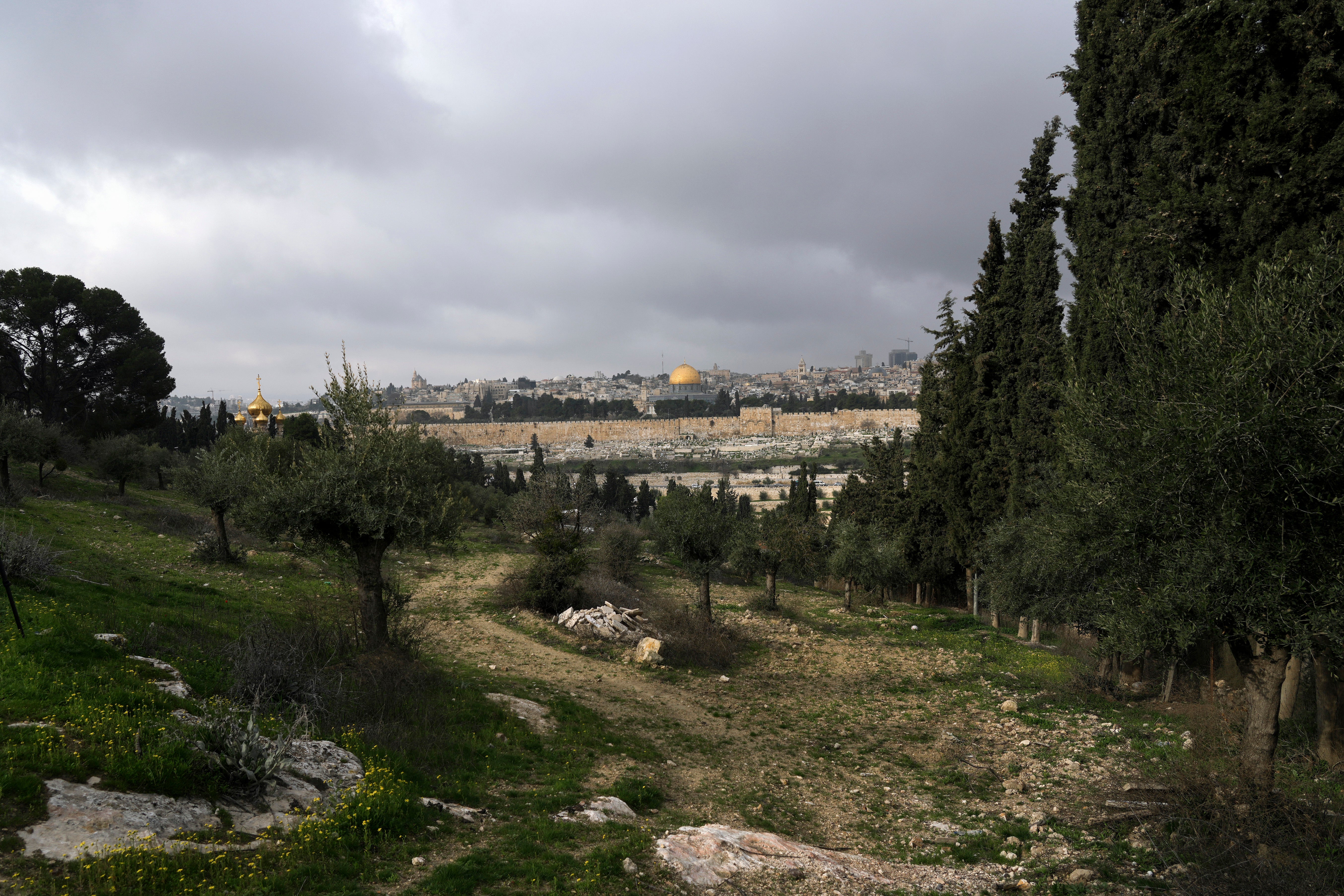Israeli authority backs down from Mount of Olives park plan
Israel’s Nature and Parks Authority says it is backing down from a plan to encompass Christian holy sites on Jerusalem’s Mount of Olives in a national park after vociferous outcry from major churches

Israel’s Nature and Parks Authority on Monday said it was backing down from a contentious plan to encompass Christian holy sites on Jerusalem’s Mount of Olives in a national park following vociferous outcry from major churches.
The Mount of Olives in east Jerusalem rises above Jerusalem’s Old City and its sites are holy to three monotheistic faiths. Its slopes to the east of the Old City are studded with churches of various sects that mark the traditional places of events in the life of Jesus.
The Armenian, Catholic and Greek Orthodox churches petitioned Israel’s environmental protection minister, whose department is in charge of the Parks Authority, in a letter last week.
The churches expressed the “gravest concern and unequivocal objection” to the plan, saying it would disrupt the longstanding state of affairs and aims to “confiscate and nationalize one of the holiest sites for Christianity and alter its nature.”
Farid Jubran, general counsel of the Catholic Church's Custody of the Holy Land, said that by making an area that includes church property part of a national park it was “putting the control in the hands of people who have no other agenda but to wipe off any non-Jewish characteristic on this mountain.”
Environmental Protection Minister Tamar Zandberg did not respond to interview requests.
But shortly after the churches' outcry, the Nature and Parks Authority said it was freezing the plan, which was to be approved on March 2 by Jerusalem's planning committee.
The authority said it has “no intention of advancing the plan in the planning committee and it is not ready for discussion without coordination and communication with all relevant officials, including the churches, in the area.”
Israeli rights groups and peace activists had denounced the plan as an attempt by Israeli authorities to marginalize Palestinian residents and increase the Jewish religious and national significance of the Mount of Olives.
In a joint statement, rights groups Bimkom, Emek Shaveh, Ir Amim and Peace Now said the plan to extend the Jerusalem Walls National Park to include sections of the Mount of Olives was part of “various mechanisms used by Israel in east Jerusalem to entrench its sovereignty, to marginalize non-Jewish presence and to prevent much needed development of Palestinian neighborhoods hereby increasing the pressure to push them out of the Old City basin.”
Israel captured east Jerusalem and its Jewish, Christian and Muslim holy sites in the 1967 Mideast war and annexed it in a move unrecognized by most of the international community.
The holy city is the emotional epicenter of the more than century-long Israeli-Palestinian conflict, and even minor changes to the fragile status quo in Jerusalem has the potential to erupt into violence. The Palestinians seek east Jerusalem as capital of a future independent state, while Israel considers the city its united capital.
Bookmark popover
Removed from bookmarks